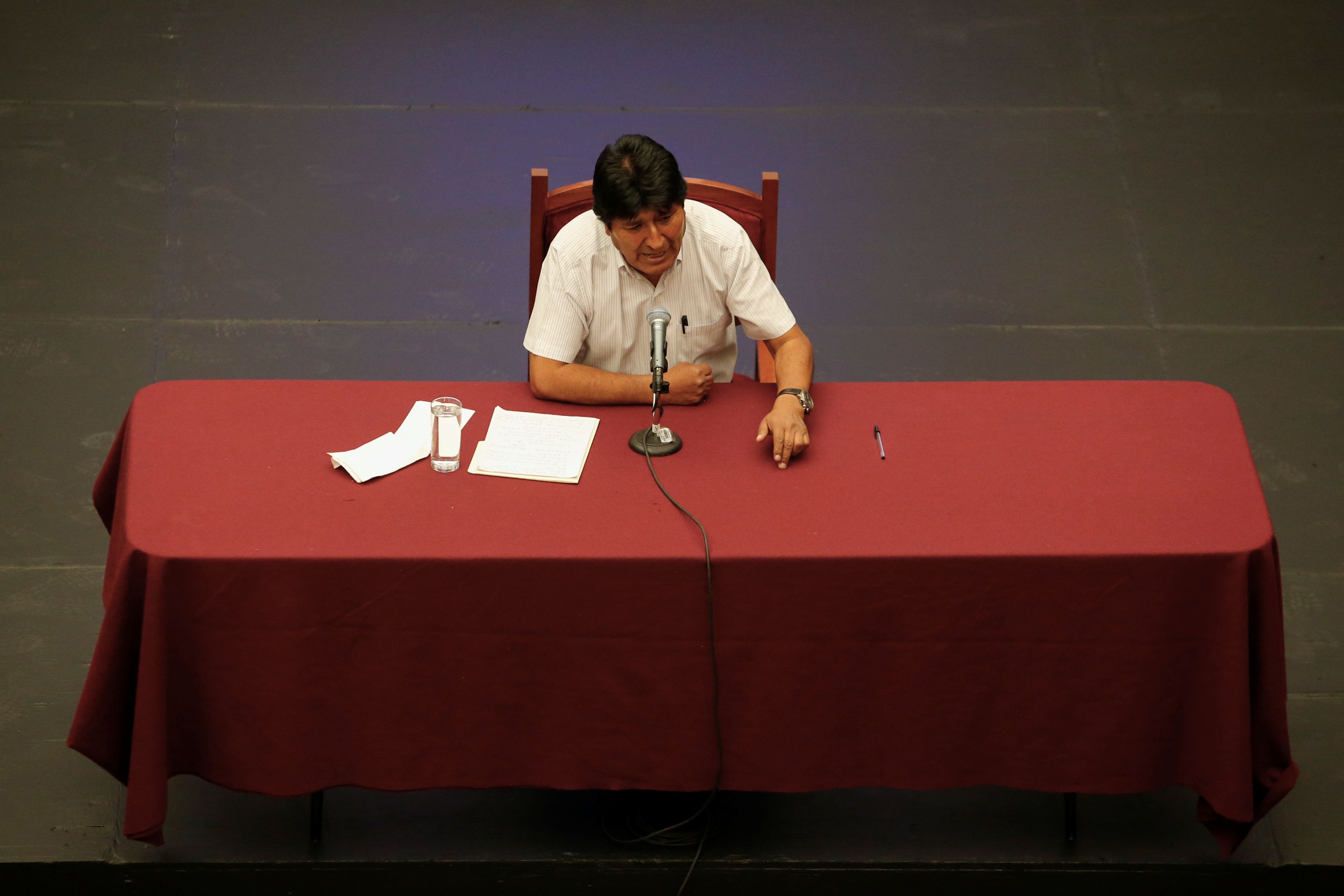The Resignation of Bolivia’s President

Why did Morales resign?
Morales cited fear for his life as the reason he fled Bolivia (he specifically mentioned attacks on his allies and alleged the risk of an assault against him) but he also wanted to avoid arrest over the election fraud. OAS confirmed on 10 November serious irregularities had been uncovered in the elections of 20 October (e.g., interference in the vote-counting system). The OAS argued that a new election should be held and those in charge of elections replaced. Morales accepted that, but on the same day, the army’s leadership, the police, and the country’s largest labour union urged him to resign, arguing it was a basic condition to restore order—these statements forced him to flee. In fact, Morales had run for his fourth term as president thanks to support from the servile Constitutional Tribunal, even though the constitution allows only two terms and Bolivians, in a 2016 referendum, rejected an extension of that limit.
What does Morales’ decision mean for Bolivia’s internal situation?
Morales’ self-imposed exile was followed by a series of resignations of his allies in power, including the vice-president and most of his ministers, among others. Morales described the situation as a coup. Formally, he remains president until parliament approves his resignation, but MPs from the Morales’ Movement for Socialism are boycotting the legislative sessions. Despite the lack of a quorum, parliament proclaimed opposition Senator Jeanine Áñez the interim president. Her main task will be to call for new elections as soon as possible. However, the restoration of order will be difficult because Morales will continue to try to influence the situation in the country by mobilising his supporters and exploiting the legal controversy surrounding his resignation and the appointment of new authorities. Consequently, divisions in society will deepen, as a dispute may emerge over the legitimacy of the repeated elections.
What are the international implications of the political situation in Bolivia?
What is occurring in Bolivia is destabilising to Latin America. Mexico’s decision to grant asylum to Morales based on a claim of a coup d’état will increase polarisation in the region over the principle of noninterference, as well as of the understanding of and promotion of democratic order. Bolivia has been an ally to the authoritarian and anti-U.S. authorities in Cuba and Venezuela, as well as outside the region, to Russia, so Morales’ resignation will weaken cooperation with these partners. Brazil and the U.S. reacted positively to Morales’ departure. Since the beginning of the crisis, the EU has supported a peaceful way out of the conflict and argued new elections would be the right solution. It supported the actions and proposals of the OAS, which will be a key partner of the new Bolivian authorities in the resolution of the crisis. The challenge in these efforts will be the disputes around the legality of the political change in Bolivia.


